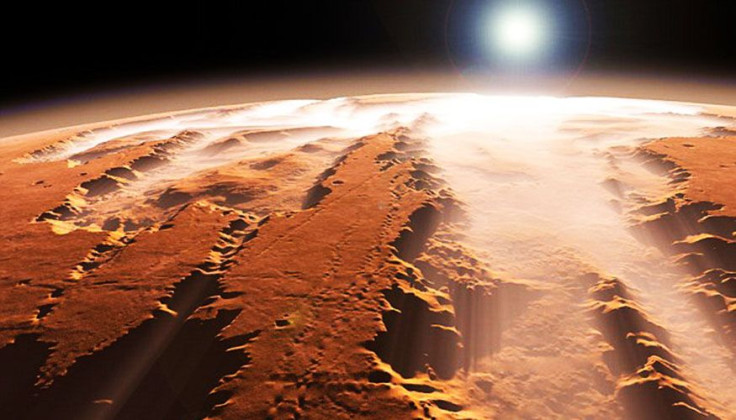When Water On Mars Disappeared: Planet Has Been Dry For Billions Of Years

The window of time during which ancient Mars was warm, wet and comfortable for alien life may have been quite short — new research suggests Earth’s planetary neighbor has been a wasteland for billions of years.
Meteorites that are believed to have come from Mars and crashed down on Earth contain gases that indicate when Mars transformed, a study in the journal Earth and Planetary Science Letters says. Specifically, the xenon in the two rocks “provide empirical evidence for atmospheric loss early in planetary history.” According to the study, the way xenon isotopes formed in the meteorites holds clues about when gases and liquids escaped.
The paper also says the loss of atmosphere happened perhaps a few hundred million years after the planet formed. A little more than four billion years ago, “Mars may have been significantly drier than Earth after this time.”
Lots of previous research has pointed to water and more a temperate climate on Mars in the planet’s history, although the idea has been a subject of debate. It could have been that Mars lost about two-thirds of its atmosphere, leaving it with the thin air it has now.
The atmospheric loss would go hand-in-hand with the climate change on its surface — the water disappearing from its environment. Before all the water was sucked away, there could have been enough to form an ocean; enough to give the planet a full water cycle that would have seen rain pouring down and eroding the terrain into the landscape features our scientists study today.
Apart from providing information about the evolution of the solar system and how the planets formed, knowing about the ancient climate on Mars could have applications in the search for alien life — both past and present — in the solar system.
There is also debate about whether creatures as small as microbes could exist on Mars even today.
This new study potentially narrows the timeline of when an Earth-like Mars may have existed, and thus may also narrow the period during which extraterrestrial life could have roamed the Martian surface.
“These data suggest that liquid water may not have been abundant on the Martian surface since a few hundred million years after planetary formation, and therefore Mars may have been a cold and dry planet for the vast majority of its history,” paper author Bill Cassata said in a statement from Lawrence Livermore National Laboratory.
© Copyright IBTimes 2024. All rights reserved.




















